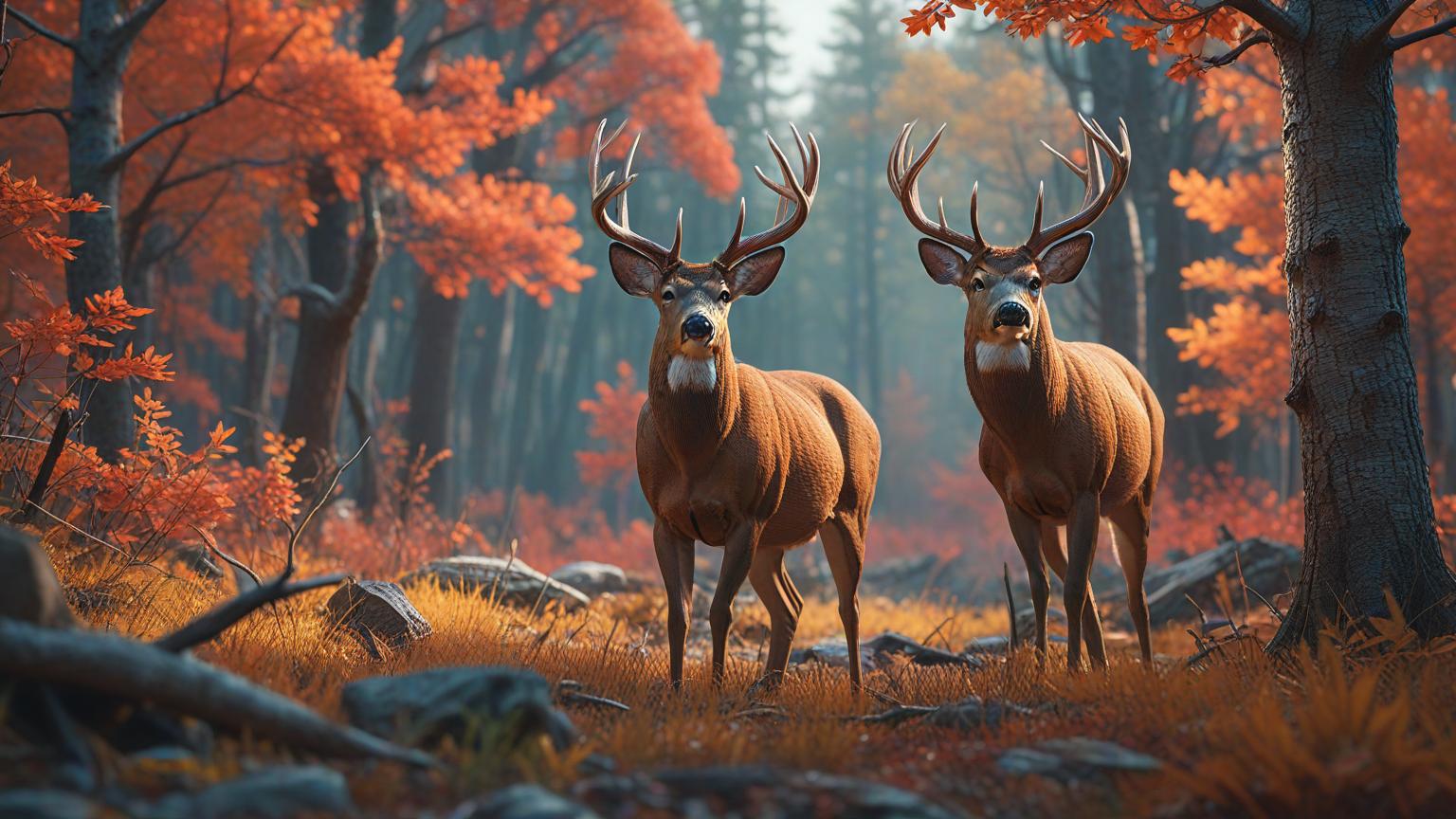Whitetail deer hunting is a favorite pursuit for many hunters, combining skill, patience, and an understanding of nature. This guide will cover essential strategies, recommended gear, and expert tips to help you improve your chances of success in the field.
Strategies for Success
- Scout Early and Often
Scouting is critical for understanding deer patterns, identifying prime hunting spots, and locating food sources. Begin your scouting process weeks before the hunting season, and look for signs such as deer trails, bedding areas, and food sources. Use trail cameras to monitor deer movements and behavior over time, helping you build a strong plan.
- Choose Your Stands and Blinds Wisely
Stand and blind placement can make or break a hunt. Tree stands offer an elevated perspective and can mask your scent, while ground blinds allow for more movement. Place your stand or blind near deer travel routes, bedding areas, or food sources, but ensure it’s downwind of the deer’s expected path to avoid detection.
- Timing Your Hunts
Deer are most active during dawn and dusk. Arrive early to your hunting spot to avoid spooking deer and give yourself the best chance of spotting movement. Additionally, during the rutting season, bucks are more active and less cautious, making them easier to hunt. Plan your hunts accordingly to take advantage of these peak times.
- Adapt to Weather and Environment
Weather changes can affect deer behavior. In colder temperatures, deer may move more frequently in search of food. Rain or snowfall can dampen sounds, allowing you to move more quietly. Pay attention to weather forecasts and adjust your hunting strategy to match the conditions.
Essential Gear for Whitetail Deer Hunting
- High-Quality Optics
Spotting a deer from afar requires good optics. Binoculars and rifle scopes with clear vision and zoom capabilities are essential for spotting deer at a distance and taking accurate shots.
- Scent Control Products
Whitetails have a strong sense of smell, so controlling your scent is critical. Use scent-neutralizing sprays on your clothing and gear, and consider scent-blocking clothing to minimize your presence in the environment.
- Camouflage Clothing
Blending into the environment will increase your chances of success. Wear camouflage that matches the terrain you’re hunting in, such as forest or field patterns, and make sure it’s suited for the current season.
- Reliable Firearm or Bow
Choose your weapon based on your experience and local regulations. Rifles with appropriate calibers or compound bows with good draw weights are both excellent choices. Practice with your weapon to ensure accuracy and confidence when taking a shot.
- Range Finder
Estimating distances accurately can be challenging, especially in dense forest. A range finder helps you determine the exact range to your target, allowing you to make adjustments and improve your accuracy.
Expert Tips for Whitetail Deer Hunting
- Stay Quiet and Be Patient
Whitetail deer are easily spooked by unfamiliar noises. Move slowly, make minimal noise, and remain patient. Sometimes hours of waiting are required, but keeping still and staying alert will increase your chances of spotting deer.
- Pay Attention to Wind Direction
Wind direction can carry your scent to deer, making them wary. Always check the wind before setting up your stand or blind, and adjust accordingly to avoid detection. Keeping the wind in your favor can make a big difference.
- Practice Stealth and Movement Techniques
When stalking deer, stay low and move quietly. Wear soft-soled boots to minimize noise, and pause frequently to listen for deer movement. This technique is particularly useful in heavily wooded areas where visibility is limited.
- Field Dressing Knowledge
Field dressing is an essential skill for preserving meat and maintaining quality. Learn to field dress a deer quickly and effectively to cool the meat as soon as possible, reducing the risk of spoilage.
Conclusion
Mastering whitetail deer hunting requires a combination of knowledge, skill, and patience. By scouting early, choosing the right gear, and practicing stealth, you’ll improve your chances of success in the field. Remember, respect for the animal and the environment is essential for ethical hunting. Whether you’re a novice or experienced hunter, applying these strategies and tips will help you have a productive and rewarding season.

No responses yet